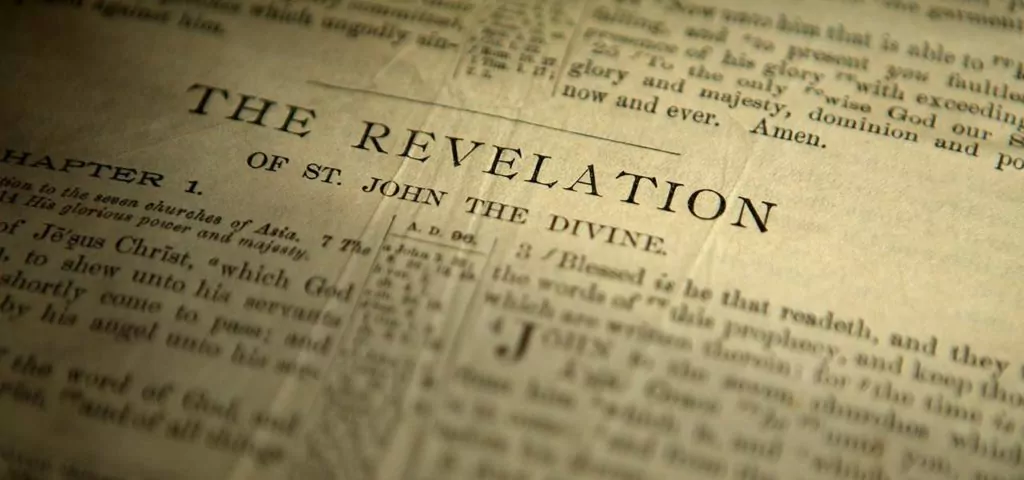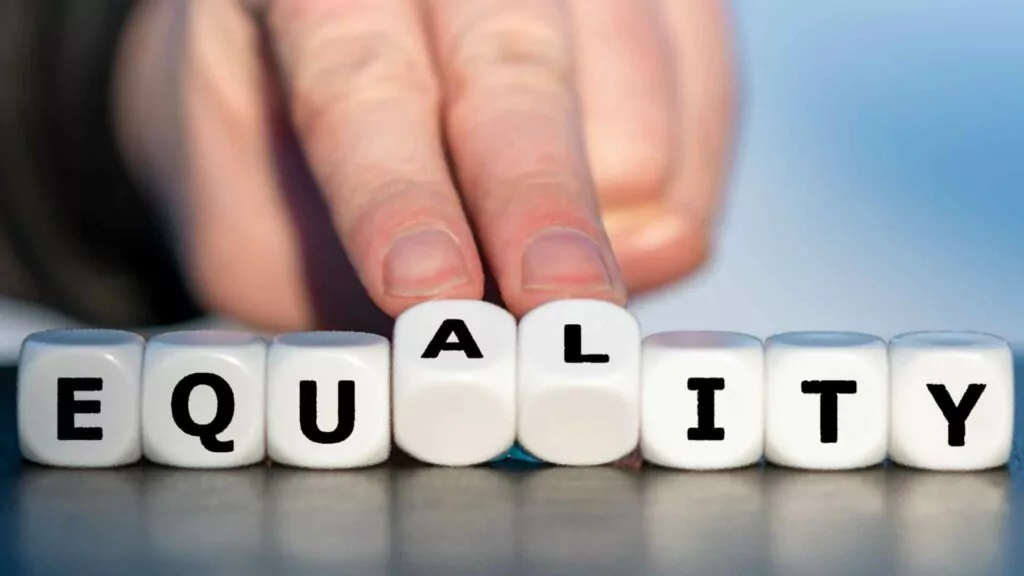They might seem close synonyms but the Devil is in the details
****
A couple of years back a viral video showed a large group of older teens getting ready to race for a $100 bill. It was men and women, blacks and whites, athletic sorts and not so, and all things being equal, we’d expect one of the long lean guys to run away with the money.
But the point of the video was to explain that things are not equal. The leader of the group, Adam Donyes, had a series of eight statements to tell the students before the race got started. The teens were supposed to take two steps forward for each one that applied to them:
- “Your parents are still married.”
- “You grew up with a father figure in your home.”
- “You had access to a private education.”
- “You had access to a free tutor growing up.”
- “You never had to worry about your cellphone being shut off.”
- “You never had to help mom or dad with the bills.”
- “It wasn’t because of your athletic ability that you don’t have to pay for college.”
- “You never wondered where your next meal was going to come from.”
Doynes was trying to make a very specific point. He told the group that each of his statements had “nothing to do with decisions you’ve made.” The students up front were there not because of anything they had done, but because of the position they had been born into, or their parents had put them in. He told those students:
“…if this was a fair race, and everybody was back on that line I guarantee you some of these black dudes would smoke all of you. And it is only because you have this big of a head start that you’re possibly going to win this race called life. That is a picture of life, ladies and gentlemen. Nothing you’ve done has put you in the lead that you’re in right now.”
Then he shouted “go!” and the race was on.
Drawing out biblical truths
There are some clear biblical truths that could be drawn out of this video. Luke 12:48b might come to mind:
“From everyone who has been given much, much will be required; and to whom they entrusted much, of him they will ask all the more.”
Or we might think of how the three servants were given different amounts of money in the Parable of the Talents in Matt. 25. It’s important for us to understand that for those who have been blessed with more, God has raised expectations for us.
The video also lines up well with 1 Cor. 12 where Paul notes our different gifts, comparing them to parts of the body. One person might be a hand, another a foot, and another an eye. And just like the “eye cannot say to the hand ‘I have no need of you'” so too we shouldn’t look down on those with different gifts than our own. That’s an important lesson, and Doynes tries to make that specifically to those out in the front.
But in this same chapter Paul also makes another point that would have been an important one for all those farther back. We are all part of the body, and we shouldn’t overlook what God gifts has given us:
“…the body does not consist of one member but many. If the foot should say, ‘because I am a hand I do not belong to the body,’ that would not make it any less a part of the body….there are many parts, yet one body.”
Guilt vs. gratitude
So there was a lot to love in this video. But what made it go viral was how it seemed the perfect illustration of “privilege,” and specifically “white privilege,” since blacks were clustered in the back, and the very front was populated with whites.
The way the term privileged is used it can seem like a close synonym to blessed. One person says, “I’m blessed to have always had a roof over my head” and another says, “I was privileged to never have to worry about being homeless.” Just a matter of tomato/tomatoh, right? Two terms for the same idea.
But there’s an important sense in which the two words are actually opposites.
Blessed is an inherently positive word. When we say we are blessed in this way or that, it is a note of appreciation to our “blesser” whether that is God, or maybe our parents, spouse, friends, or children.
But whereas we celebrate the ways in which we are blessed, one admits to being privileged – we’re supposed to “check our privilege.” Being blessed makes us grateful, but being privileged brings guilt. Parents stayed together? You got to go to a basketball camp last summer? Lucky you, but not all of us are so privileged.
There’s more to privileged than just guilt. Often times it is shorthand for something like: “You’re privileged so you don’t know me – you haven’t lived through what I’ve had to endure.” There’s truth to that – if we’ve been sheltered from some of the world’s harshness that can bring with it a naivety. And that might leave a gulf between us and others who haven’t been so blessed. But even in this usage privileged is a negative word. Noting differences can be a step to understanding, to beginning to know one another. But the way privileged is used it is not a conversation-starter. This is a putdown used as a conversation-stopper.
While Donyes didn’t use the word privilege in his video, there was a reason so many others thought it fit – his video wasn’t a celebration of blessing; there was a touch of shame instead.
If the difference between blessed and privileged is still muddy consider this: when we are blessed and others are not, what do we want for them? Don’t we want them to have what we have?
But when we admit to being privileged, is that a state we’d wish on anyone else? Being privileged isn’t something you aspire to. This is part of the “victimhood culture” where the worse off you are, the less guilt you have to feel for what you have. But when it’s good, or at least less shameful, to be hard off, then it’s bad to become more “privileged.”
A wise man once said that the battle we’re in is over the dictionary, and this is an example. These two words – blessed and privileged – seem almost synonyms, but whereas the first takes us to gratitude and God, the second leads to unremitting guilt and stagnation.
Inequality vs. poverty
Inequality and poverty are also used interchangeably. When we see people who don’t have a warm bed to sleep in, or don’t have money for needed medical expenses, then we’ll quite naturally wish their situation wasn’t so unequal. We want them to have what we have, and wish that they could live like we do.
But what we’re really lamenting here is not inequality but poverty. If inequality was our concern, we could be happy as long as everyone was equally needy. But that’s not what we’re after. Our real goal is for the poor to be raised out of poverty. So here, too, there’s a sense in which this is all just tomato/tomatoh– we might use different words, but we all want to help the poor.
But once again there is an important sense in which two seeming synonyms have dangerously different meanings.
Whereas “fighting poverty” is focused on helping the poor, fighting inequality is sometimes about tearing down the rich. That shift of focus happens whenever we start believing that one person’s success happens at other people’s expense.
That’s what Donyes taught in his video. Donyes told students that his $100 race was like “this race called life – this is a picture of life ladies and gentlemen.” But his race had only one winner. And that winner could only succeed if others failed. In this setting every two steps someone got to take forward diminished the chances of winning for all those left behind.
If that’s how you thought the world operated, what sort of attitude would you have towards millionaires and billionaires? If you believed they got their wealth by impoverishing the rest of us, what would you see as the best way to help the poor? Just that quick, concern for the poor becomes “Let’s get the filthy rich!”
The world’s wealth isn’t fixed and limited. If it was, would the Tenth Commandment (Ex. 20:17) make sense? There God tells us it’s none of our business what our neighbor has, but if our neighbor could only get wealthy by keeping others poor, wouldn’t we all have a legitimate interest in making sure he didn’t get too much?
The truth is, life is not a winner-take-all-race. We can thank God that’s true spiritually, with God’s children numbering as the sand on the seashore – God has made us all champions, and there are too many of us to even count.
And it’s just as true materially. Even if someone beats me out for my dream job, that doesn’t mean I have to go jobless. There are other careers. I can succeed too. And if I start a successful business, yes, I might grow wealthy, but I’ll be making my money by creating a product that others find useful enough to pay for. I won’t become wealthy at my customers’ expense. They’re only buying my widget because they think it is worth more than I am asking for it (or they would never buy it). In a very real way in all the countless merchant/customer exchanges that take place around the world both sides are the wealthier for it. That’s why both customer and merchant will say thank-you at the conclusion of a sale – both have become richer…and at no one’s expense.
Of course, robbers do exist – some people do become wealthy only by taking from others. But that’s not the rule. God has so made our world that we can work together to each other’s benefit. That’s why the Tenth Commandment makes sense. And when we realize that our neighbors’ wealth isn’t making anyone poor, then we can get back to fighting poverty in fruitful, rather than covetous ways.
Conclusion
Does that mean we should shake our finger at anyone who speaks of being privileged or uses the word inequality? Not at all. We can put some care and attention to what terms we use, but we don’t need to stress it when others use something else. Rather than going all grammar-nazi on them we can listen in humility, try to be understanding, and use context to hear what they are saying.
What’s actually important is seeing through the Devil’s gambit here. Many a best-of-intentioned Christian loves the Lord with all his heart, but there’s a reason God also demands our minds (Matt. 22:37). The Prince of Perversion loves to misdirect what is good and right to his own completely different ends, and our guard against Him is knowing God’s Word, and learning how to apply it. Otherwise, the Devil might have us, in the name of helping the poor, casting covetous eyes at the wealth of our neighbor. And if he could, he’d love to rob God of the praise that is His due by making us feel guilty, not grateful, for all the blessings our Father showers on us.
Thankfully, in the great blessing of the forgiveness of sins, we can put away all guilt and all envy, and instead respond in wholehearted, full-throated gratitude to our great God.












